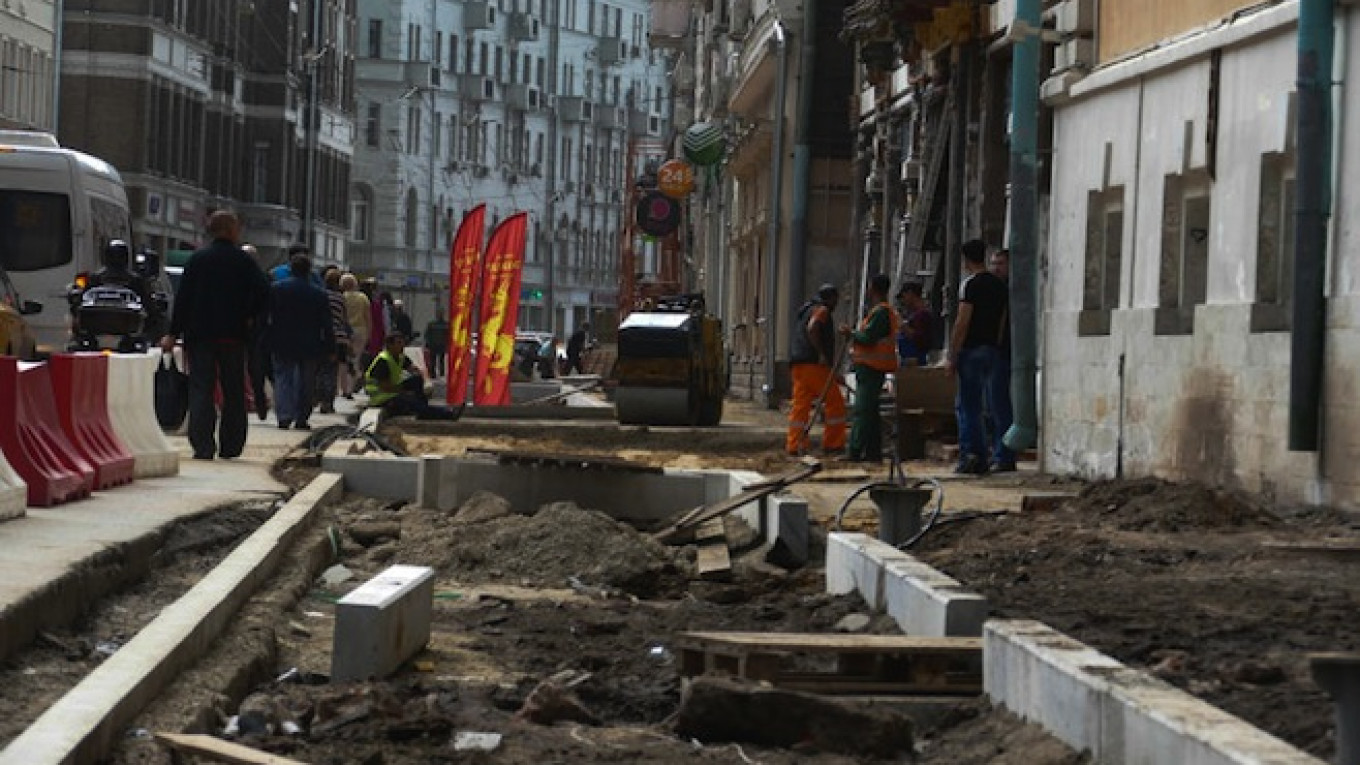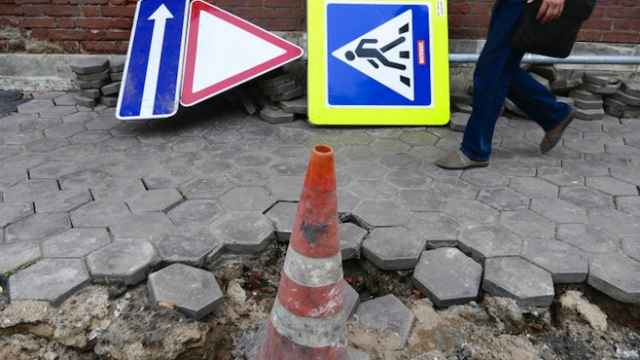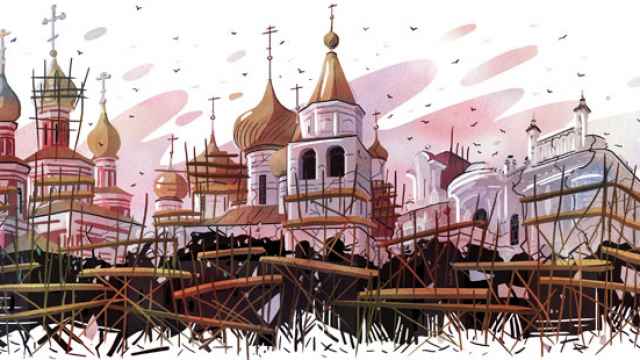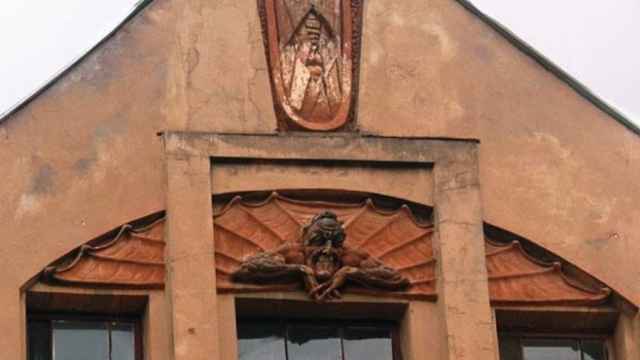Extensive roadworks in Moscow have damaged several archaeological sites on the city's central Tverskaya Ulitsa street, according to preservation activists.
One of the sites partially destroyed was a white-stone cellar that is allegedly part of the Church of St. Dmitry of Thessaloniki, which was demolished in 1933 under communist leader Joseph Stalin, said Konstantin Mikhailov on the Khraniteli Naslediya (Protectors of Heritage) website.
One of the cellar’s walls had been removed, and its arches were damaged when workers pulled communication wires through them, said Mikhailov, a co-founder of Arkhnadzor, an organization set up to defend Moscow's architectural monuments.
Mikhailov also said construction equipment had partly destroyed brickwork on Pushkin Square in central Moscow and in other parts of the city.
The destruction is a side effect of a massive program of summer road improvements that will by September renovate some 52 city streets.
Under Russian law, construction work must cease when objects of archaeological importance are found where the work is taking place, according to Mikhailov.
Arkhnadzor representative Andrei Novichkov told Dozhd, a Russian television station, that he would ask prosecutors to investigate the legality of the roadworks. The Moscow government “could not have been unaware that there are archaeological artifacts throughout central Moscow,” he said.
Activists from Khraniteli Naslediya wrote an appeal to Moscow Mayor Sergei Sobyanin: “Let’s follow the law. No improvement is worth the destruction of Moscow's antiquities.”
A Message from The Moscow Times:
Dear readers,
We are facing unprecedented challenges. Russia's Prosecutor General's Office has designated The Moscow Times as an "undesirable" organization, criminalizing our work and putting our staff at risk of prosecution. This follows our earlier unjust labeling as a "foreign agent."
These actions are direct attempts to silence independent journalism in Russia. The authorities claim our work "discredits the decisions of the Russian leadership." We see things differently: we strive to provide accurate, unbiased reporting on Russia.
We, the journalists of The Moscow Times, refuse to be silenced. But to continue our work, we need your help.
Your support, no matter how small, makes a world of difference. If you can, please support us monthly starting from just $2. It's quick to set up, and every contribution makes a significant impact.
By supporting The Moscow Times, you're defending open, independent journalism in the face of repression. Thank you for standing with us.
Remind me later.






